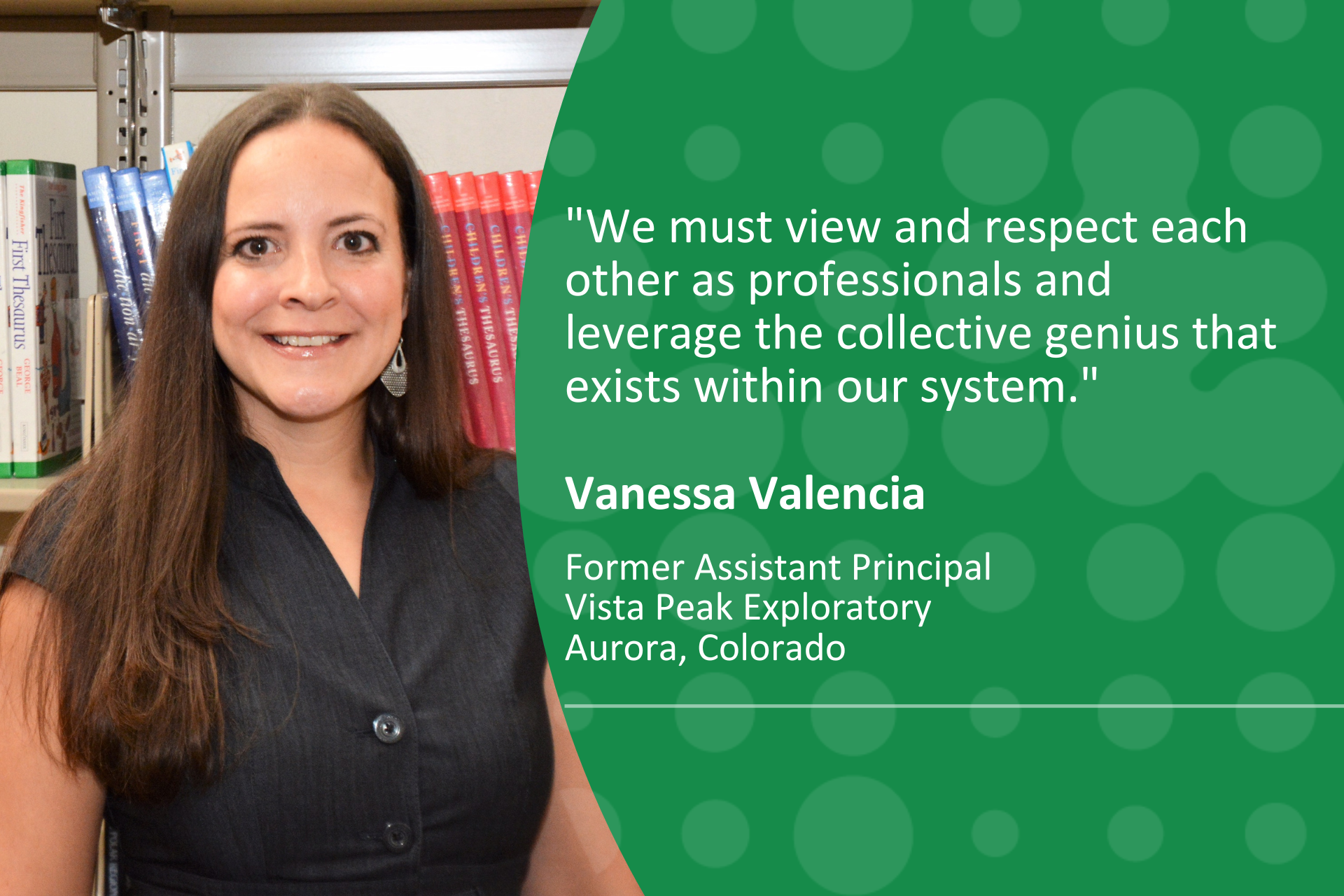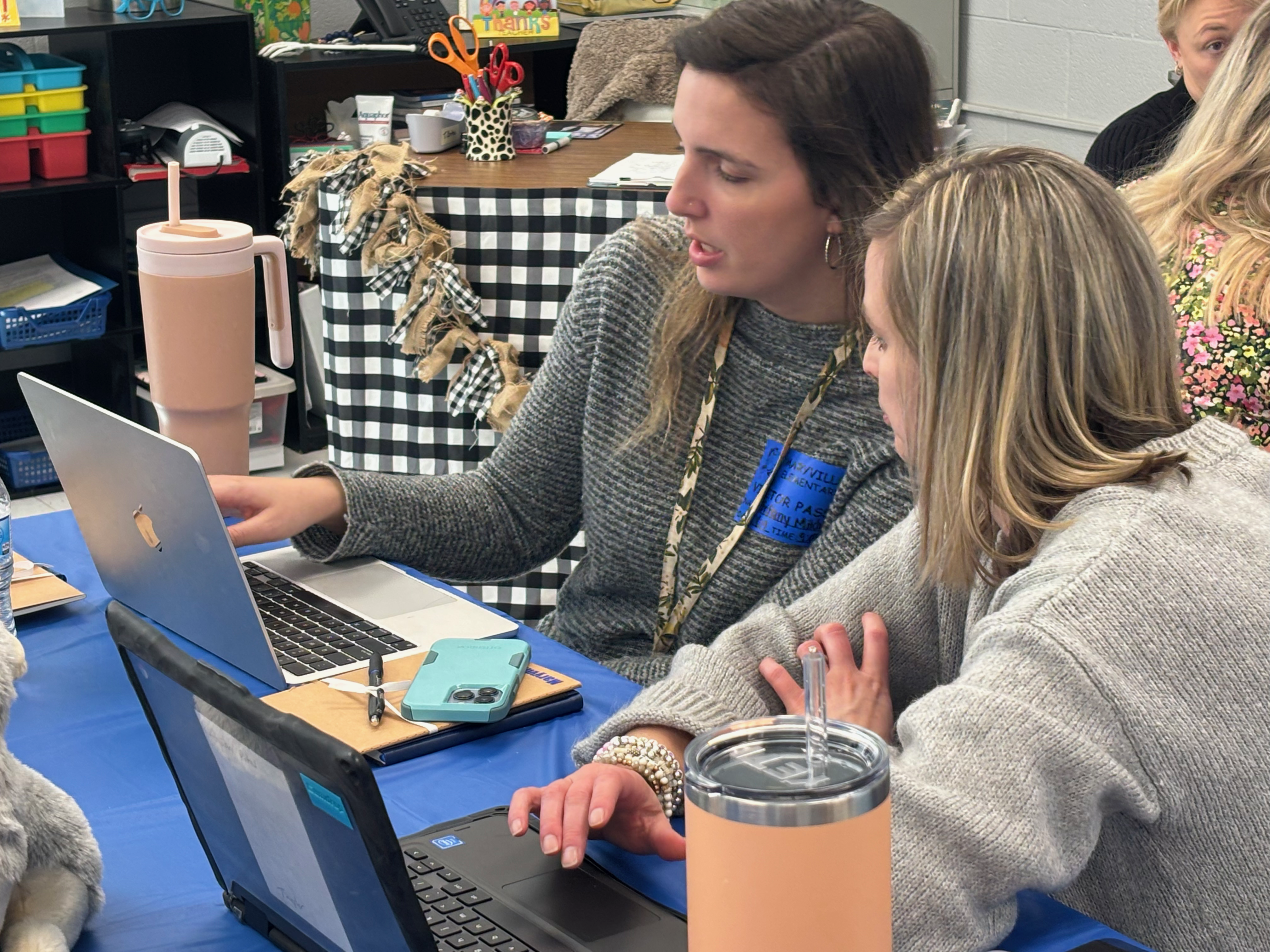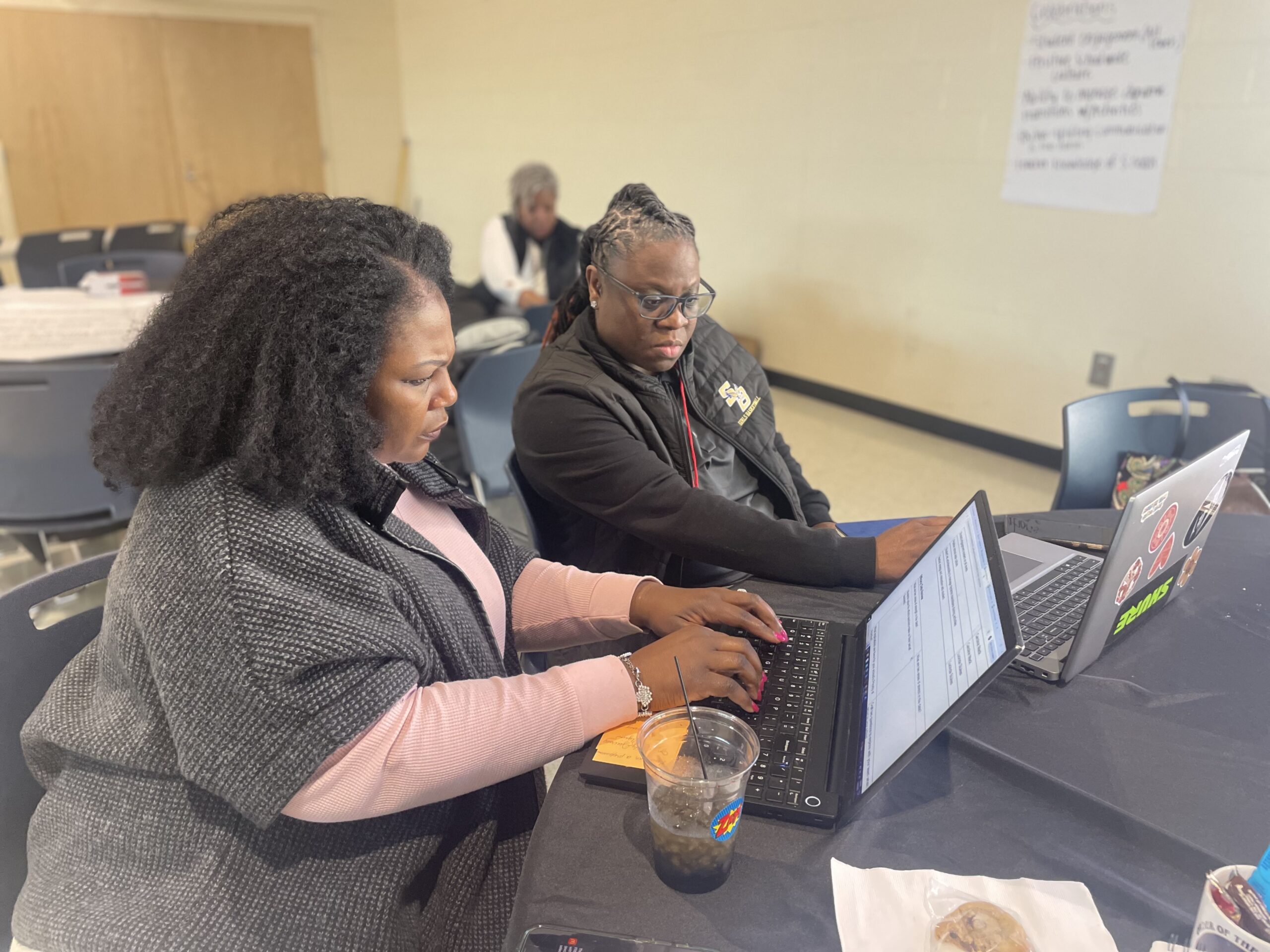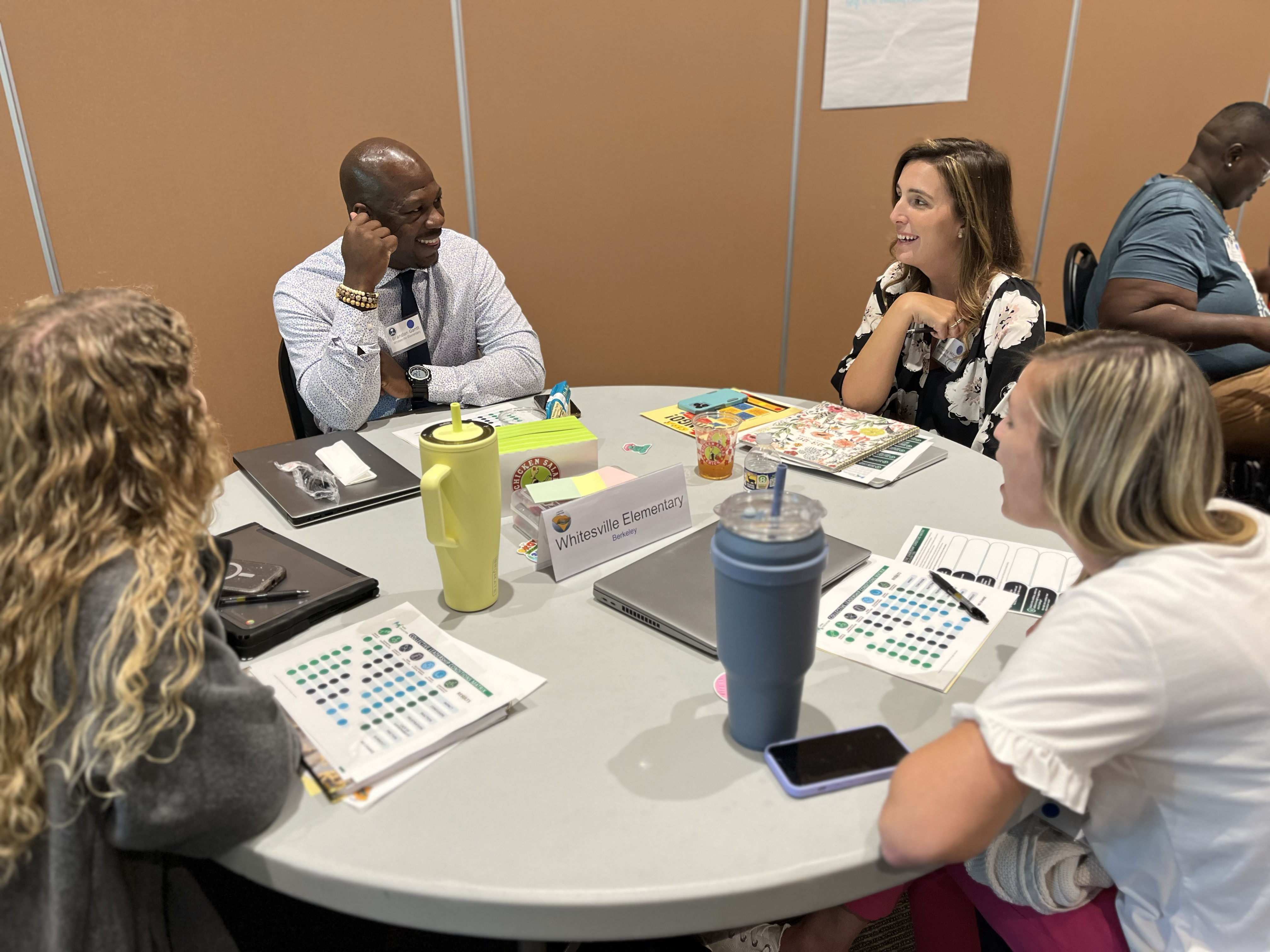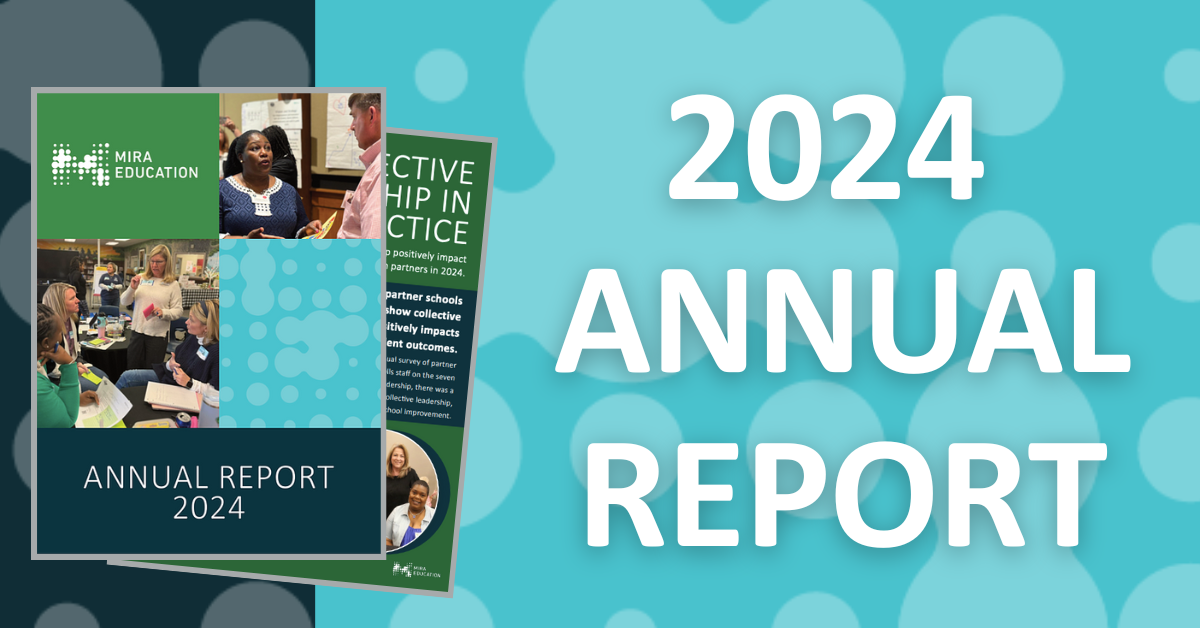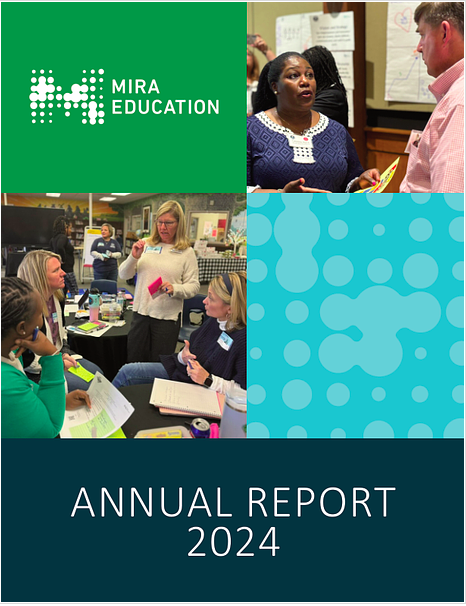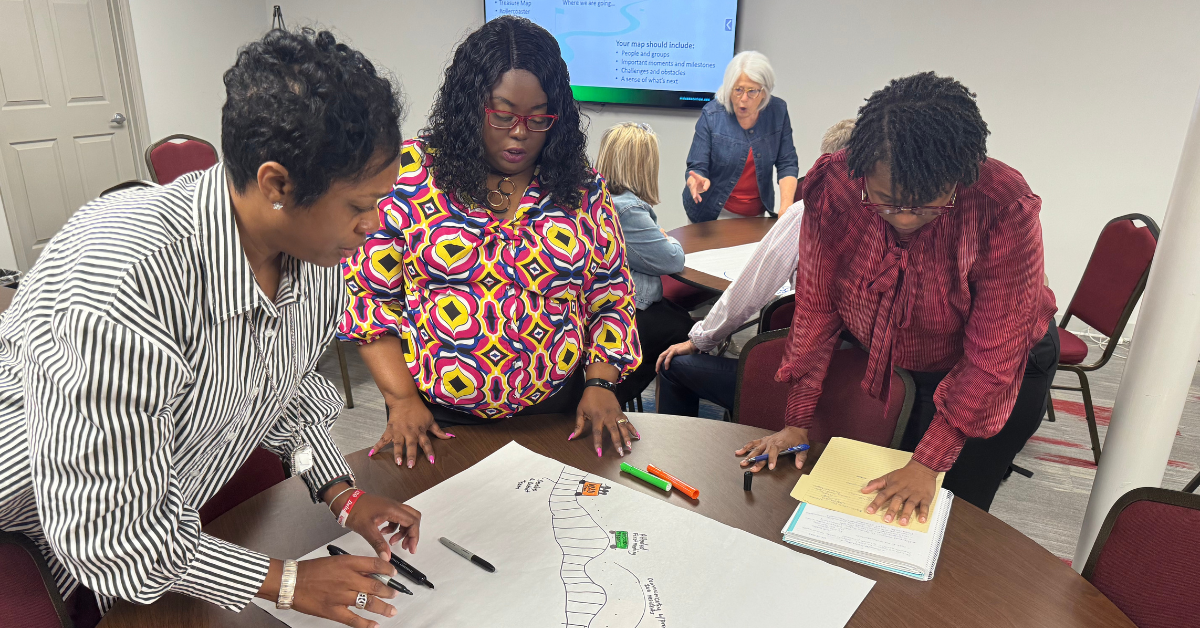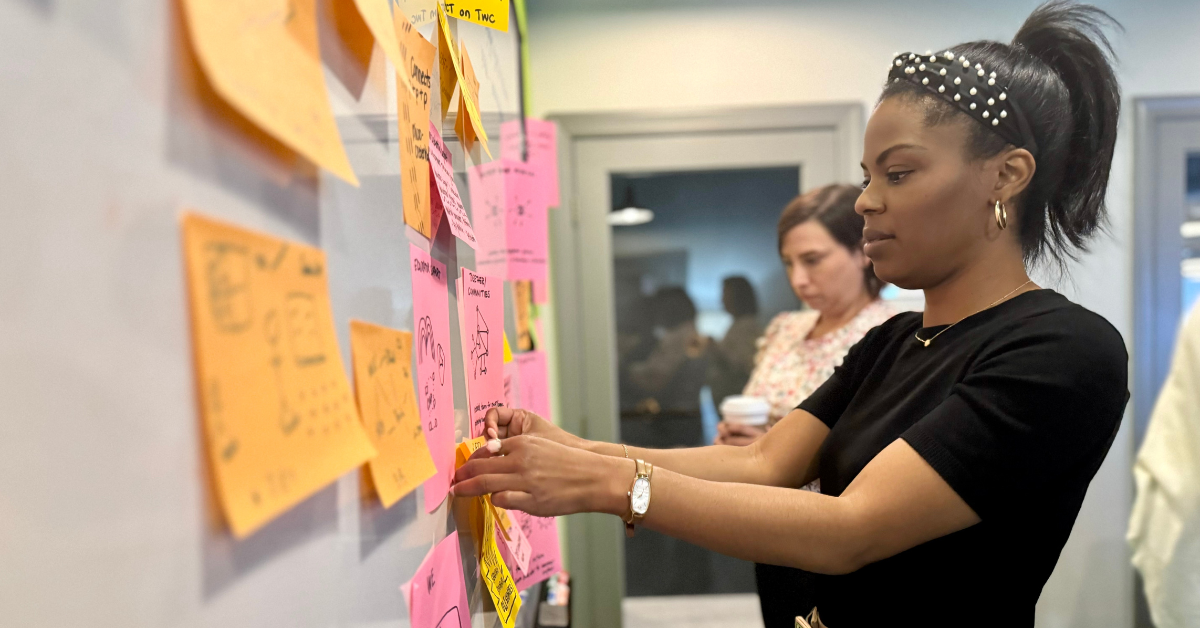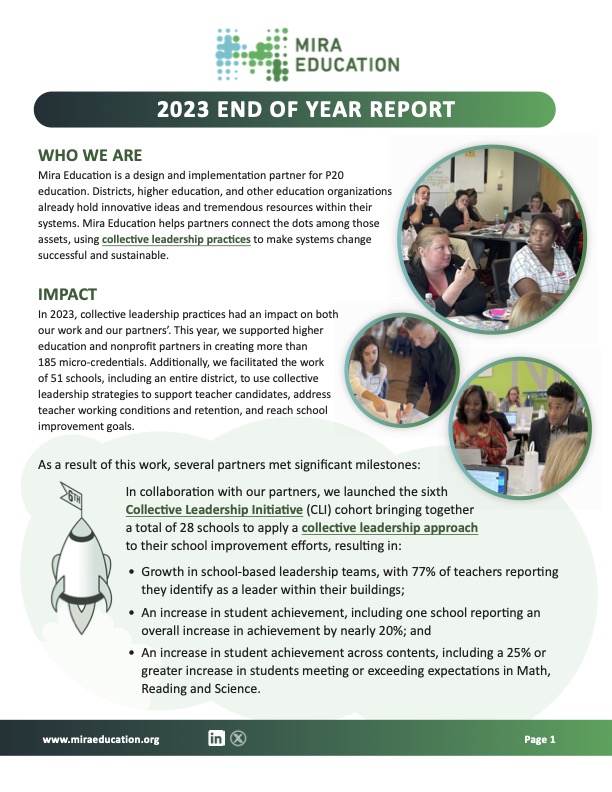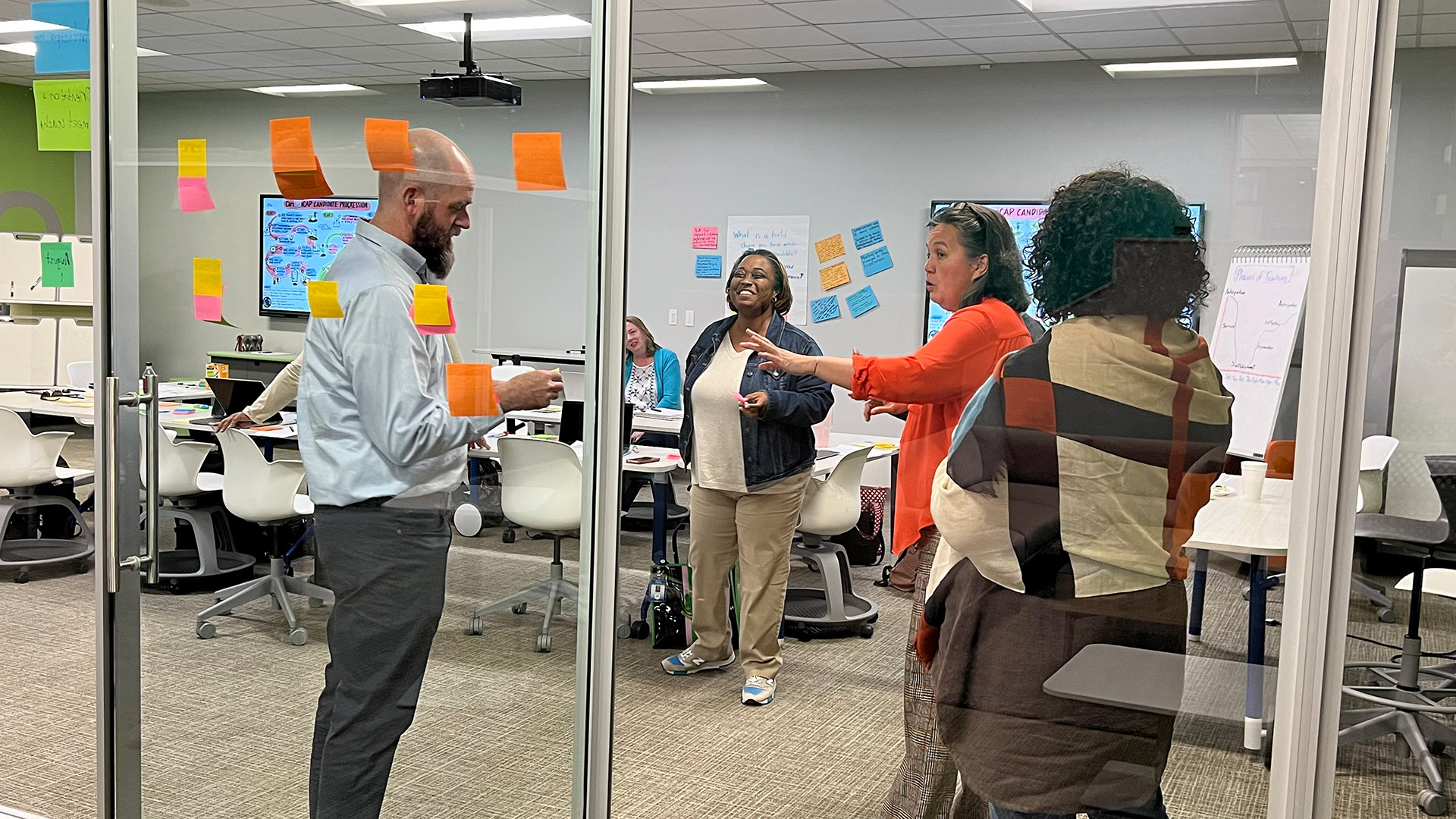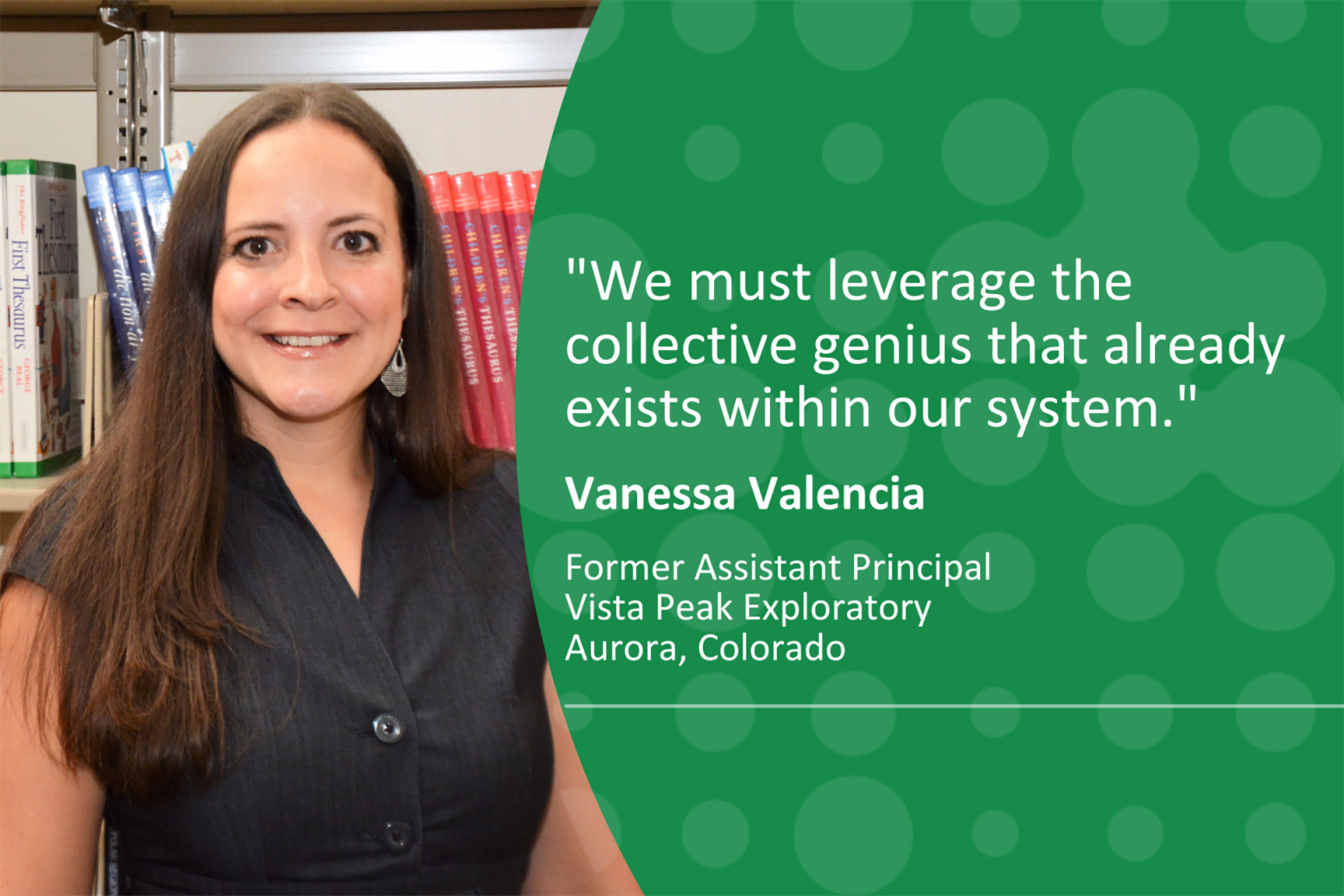Mira Education
A Better Way to Finish Strong
How Collective Leadership Helps School Leaders Finish Strong
The month of May is a marathon, not a sprint. Testing, hiring, celebrations, and next-year planning. It’s all happening at once, and the pressure to “finish strong” is real.
But for too many leaders, “finishing strong” gets translated into “doing more,” and often doing so alone.
There’s another way.
What Collective Leadership Looks Like at the End of the Year
The work may not be easier, but leaders in these schools and districts aren’t just surviving the end of the year. Rather, they’re designing it with their teams to co-own the work and the results. Here’s what that looks like in practice:
Desiloed Decision-Making
Instead of tackling hiring, planning, and budgeting in parallel conversations, they bring the work into one shared frame. In our work with the University of Maryland School Improvement Leadership Academy, principals and assistant principals focus on competency-based professional learning to sharpen their skills in inclusive leadership practice.
“SILA provided research with practical skills to improve school systems. With the skills I developed in SILA, we were able to increase our attendance rate this year from 70.1% to 83.1%.” Allison Johnson, J.D., NBCT, Assistant Principal, Anne Arundel County Public Schools
Distributed Reflection
Every team, not just administrators or the central office, has space to look back, name what worked, and surface what needs attention.
As part of our partnership with the South Carolina Department of Education, 31 schools across 15 districts are implementing collective leadership practices to spur improvement and reflect on what their schools need to be a thriving learning community.
Centered co-ownership
When the temptation to “just get it done” kicks in, they ask: Who else could lead this? And more importantly, who is already leading, but hasn’t been named?
By coming together to view student data as a team, Scott’s Branch Middle School was able to share to increase its capacity to support each student.
“Student achievement was always the core of our work. But the problem was we were all on our own islands. …Doing the data walls helped us see a clear picture of what each child needed.”—Caroline Mack, Teacher of the Year, Scott’s Branch Middle High School
When leaders aren’t carrying the load alone, they’re part of a system that holds together, even in the toughest weeks.
Try this
End-of-year pressure can make us default to “just get it done.” But co-leadership requires us to slow down and shift the approach. Try this:
- Map out a key end-of-year task that’s currently sitting on your plate. It could be anything from finalizing budgets to planning PD or preparing graduation events.
- Identify two other team members already contributing to this task, whether actively or behind the scenes.
- Name one action you can take to share the ownership of this task with them publicly: acknowledging their role in a meeting, shifting responsibility, or asking for their input on key decisions.
The goal isn’t just to share the workload. The goal is to co-own the process and outcomes as a team.
Learn more about how schools are implementing collective leadership to drive real change.
Uncertainty ≠ Instability: 4 Key Strategies for Education Leaders to Support Staff Through Change
Change in education is constant, but uncertainty doesn’t have to lead to instability or getting stuck. Education leaders play a crucial role in navigating the unpredictable nature of school improvement, curriculum shifts, and policy changes. By focusing on what’s within your control and supporting your staff through the unknown, you can lead confidently, reduce stress, and promote a healthy, collaborative school culture.
Here are four actionable strategies to help education leaders support their teams during uncertain times and create stability in change.
1. Focus on What You Can Control: Leadership Strategies for Success
In uncertain times, it’s easy to feel overwhelmed by factors beyond your control, like changes in education policy, fluctuating budgets, or evolving state mandates. However, focusing on what you can control is the most effective way to maintain stability within your team.
You can’t control everything, but you can control your leadership approach: how you communicate, how you advocate for resources, and how you support your staff. By focusing on these areas, you can avoid burnout and build a positive, proactive school culture.
Key Takeaway:
In times of uncertainty, education leaders should focus on the leadership actions and decisions within their control. If it is not yours to do, it is not yours to worry about. This maximizes the impact you can have and fosters resilience.
2. Communicate Early and Often: Building Trust with Transparent Leadership
Effective communication is one of an education leader’s most important tools during change. Proactive communication ensures that staff members are informed, reducing confusion and anxiety about potential shifts.
Whether it’s about curriculum updates, policy changes, or school-wide initiatives, keep your team in the loop early and often. By being transparent and consistent, you prevent assumptions and encourage a culture of trust. Staff should know they can rely on you for updates and information.
Key Takeaway:
Communication is the foundation of trust. Early and frequent updates are key to keeping staff informed and reducing uncertainty during periods of change.
3. Avoid Siloed Decision-Making: Promoting Collaboration Across Teams
Siloed decision-making can lead to misalignment and frustration, especially when facing uncertain times. When teams or leaders work in isolation, it often results in confusion and resistance to change. Instead, promote collaboration across teams and departments to ensure alignment and foster a shared sense of ownership.
Involve staff in decision-making processes early on and create open channels for feedback and collaboration. This ensures decisions are made with collective input, which boosts morale and reduces the risk of misunderstandings.
Key Takeaway:
Collaboration is essential for navigating uncertainty. Break down silos by ensuring decisions are made with input from all stakeholders, aligning your efforts across teams and departments.
4. Make Small Shifts for Meaningful Improvement: Sustainable School Change
Instead of waiting for large-scale changes, focus on small, incremental shifts that will drive long-term improvement. In times of uncertainty, making steady, manageable changes is more sustainable and less disruptive.
Rather than overhauling systems or processes, make consistent adjustments that can be refined over time. Whether revising a program, testing a new strategy, or making small tweaks to daily operations, these incremental changes lead to sustainable growth.
Key Takeaway:
Sustainable change comes from small, intentional shifts. Focus on incremental improvements rather than major disruptions for more significant long-term impact.
Looking for More Resources?
Leading during uncertain times doesn’t have to be overwhelming. By focusing on what you can control, communicating effectively, promoting collaboration, and making incremental improvements, you can guide your staff through unpredictable changes confidently and clearly.
For more tools and resources on leading through school change and supporting your team during uncertainty, visit www.miraeducation.org. Our free resources can help you lead for sustainable change and build a stronger, more resilient school culture.
Removing Barriers to Impact: How Education Leaders Can Find Focus in the Chaos
Why Education Leaders Get Stuck
Education leadership is filled with competing priorities — curriculum implementation, teacher retention, student success, and operational challenges. With so much happening at once, even the best plans can stall.
Maybe a new initiative isn’t gaining traction. Maybe a curriculum shift hasn’t delivered the expected student growth. Or maybe, despite endless meetings, the same challenges persist year after year.
When this happens, it’s often not because the ideas are wrong — it’s because barriers, like follow-through, misalignment, and outside factors, prevent real progress.
The solution? Removing barriers to impact — focusing on what truly matters and clearing the path for meaningful change.
How to Remove Barriers and Gain Momentum
As a design and implementation partner, we’ve helped school and district leaders refine their vision and strategy to meet their unique needs. The key? Harnessing collective leadership, aligning expertise with goals, and identifying what’s standing in the way of progress.
Here are three powerful ways education leaders can remove barriers, focus their efforts, and drive sustainable impact:
1. Leverage Expertise: Leadership is a Team Sport
The best school and district leaders don’t try to do it all alone. Collective leadership ensures that the right people are making decisions in their areas of expertise. When teams collaborate effectively, they remove roadblocks that slow down progress.
Action Step: Identify key strengths within your team. Who can take the lead in specific areas? How can you build leadership capacity across your school or district?
2. Step Back & Reflect: Use Data to Identify Roadblocks
Great education leaders don’t just collect data — they use it to pinpoint barriers and adjust strategies. Reflection isn’t just about checking progress; it’s about identifying what’s holding your team back.
Action Step: Schedule a data-driven reflection session with your team. Use both qualitative and quantitative data to assess progress, celebrate small wins, and adjust your school improvement plan accordingly. Download this tool to guide your session.
3. Turn Reflection into Action: Remove What No Longer Works
Reflection without action leads to frustration. The most effective education leaders take insights and turn them into concrete next steps—especially when it means eliminating outdated practices.
Action Step: After every strategy session, define one priority, assign ownership, and set a clear timeline for action. Removing unnecessary tasks and refining focus helps teams gain momentum. Download this tool to help you sort through initiatives and tasks to refine or remove.
Removing Barriers to Impact: A Mindset Shift for Education Leaders
Progress doesn’t come from doing more — it comes from focusing on what truly moves the needle. By stepping back, leveraging your team, and committing to actionable school leadership strategies, you can clear obstacles and create lasting change.
Feeling stuck? Let’s remove the barriers to impact together. Connect with Mira Education to build momentum and implement high-impact, sustainable school improvement solutions.
The Power of School Learning Labs
Observing Collective Leadership in Practice
How do schools make meaningful, sustainable change?
It’s a question educators ask themselves every school year.
In our work with partners, we’ve learned that big, innovative ideas do not always shake up a system. It’s the small shifts in practice that lead to sustainable school improvement.
Over the last seven years, Mira Education has partnered with the South Carolina Department of Education (SCDE) to support schools in making small shifts for significant impact through a collective leadership approach.
Collective leadership is a research-based approach that harnesses the expertise of each team member to multiply leadership capacity and bring more perspectives into the decision-making process.
Collective Leadership Initiative
The Collective Leadership Initiative (CLI) was established in 2018, and 64 schools have participated in this partnership between Mira Education and the SCDE. As part of CLI, school teams across South Carolina come together to identify a Priority of Practice (PoP) for their schools. The PoP is a growth area for school teams will focus on for two years. Teams identify the actions needed to address their PoP and plan for small, sustainable shifts in their collective practice. To ensure there are a variety of perspectives and expertise at the table, CLI teams are comprised of educators across roles – administrators, teachers, and support staff.
But what does collective leadership look like in practice?
Learning Labs
To support teams in answering this question and to offer inspiration for shared work, CLI schools participate in learning labs. Learning labs are school visits to other CLI schools to obserce the impact of collective leadership in classrooms in real time.
Recently, Mira Education and SCDE co-facilitated four learning labs at Blythewood High School, Horse Creek Academy, J.C. Lynch Elementary School, and Maryville Elementary School. While each host campus had its own style, all participants observed classrooms, heard from staff and students, and asked questions about the host campus’ collective leadership practice.
Additionally, each school team examined its efficacy survey data. The efficacy survey is an anonymous survey administered by CLI that measures the degree to which teachers believe they impact one another and student learning.
This data-reflection is part of the CLI planning process. Schools will come together again later this month to adjust their approach and identify potential shifts to their PoP to better support their team.
Learning labs effectively allow educators to see collective leadership in practice. They help the theoretical approaches learned in CLI become tangible and, more importantly, actionable.
For support identifying a Priority of Practice and to learn more about applying a collective leadership lens to your work, email info@miraeducation.org.
2024 Annual Report
As 2025 begins, the Mira Education team is inspired by the work accomplished in 2024 and encouraged by what’s to come. Read the 2024 Annual Report to see how collective leadership positively impacted students, schools, and districts in our work with partners.
3 Reflections to Lead School Improvement Planning
The end of the school year calls for both reflection and planning. In the midst of drafting master schedules and reimagining resources, school leadership teams must also take stock of what worked and what no longer serves their students and staff.
Assessing impact in the current year while also planning for the next can be overwhelming. It is even more so when you consider the increasing number of priorities that come with closing out the school year like standardized testing, setting the budget, and end-of-year celebrations – just to name a few.
There is an abundance of “how-tos” and “how-nots” when it comes to school improvement planning, but the expertise needed to make the right decisions for your school or district often lies within your team.
Use these three reflection prompts to unpack this school year and plan for the next.
1. At the beginning of the school year, what was the vision and goals for your students? For your team? How was that vision crafted?
A clear vision and strategy help orient your team and your shared work. Identifying a vision for both achievement and experience is paramount to shifting the work toward your desired outcomes. As you think about your vision for this last school year, recall how it was developed. Was it done alone or were others invited into the process?
By inviting others into the vision and strategy creation process, leadership multiplies. As the next iteration of the vision is developed, leverage the expertise across your team and across roles to increase the ownership of vision, strategy, and outcomes.
2. How did you support your team in the facilitation of this vision?
Supportive administration, whether on the district or the school level, is a key part of retaining talent and expertise. How leaders choose to not just involve staff in the vision and strategy but also support the work is pivotal for both retention and seeing that vision come to fruition. According to the EdWeek Research Center, of educators polled, having a more supportive principal/manager was the top reason they chose to stay in the profession.
As you reflect on this past year, what supports did you and other leaders offer to your team? Where could you shift your practice to be more supportive and attuned to staff needs?
3. How were capacity and resources aligned to support the vision and strategy for the year?
Capacity and resources are finite. That is a universal truth across education and across roles within each district and school. How you organize capacity and resources, however, can significantly impact the realization of your shared vision and strategy.
Consider how your team spent time this year. Was collaboration and planning time prioritized in the schedule? Was there space for cross-team learning? Time is just one of many resources you can leverage in support of your vision. Download our tool, Reimagining Your Resources, to facilitate a 90-minute discussion and recalibrate your resources to your shared vision.
As you dive into reflection, we invite you to extend that into team learning and discussion. Check out our book, Small Shifts, Meaningful Improvement, for additional tools and case studies on how to apply a collective leadership approach to your school improvement planning.
Planning for Shifts: 3 Approaches as ESSER Ends
Education was interrupted in 2020. From virtual learning to Personal Protective Equipment (PPE), the COVID-19 pandemic caused a significant shift in the profession. In response, the federal government bolstered district budgets with COVID relief funds. Now, just four years later, district leaders must shift again as those funds come to an end. Before the next school year, they will make hard decisions around ESSER funding and must pivot to meet the needs of students and staff.
What is ESSER funding?
The Elementary and Secondary School Emergency Relief Fund, commonly referred to as ESSER, is a federal program that gave districts nearly $190 billion in response to the pandemic. Districts have until the end of September to commit their share of ESSER funds and will have until January 2025 to spend them.
For some districts, ESSER funds allowed for new construction in response to growing communities. For others, it meant hiring more staff to support student needs. No matter where districts invested their funding, the time is coming for district leaders to make shifts in order to maintain momentum.
Planning for Shifts: 3 Approaches as ESSER Ends
Shifts in how districts and schools operate without ESSER funding are inevitable. Cuts are coming, if not already here. But instead of embracing a scarcity mindset, district and school leaders can proactively plan for change. These shifts won’t happen overnight and may be uncomfortable, but they present themselves as an opportunity to re-engage the people who make the work of districts and schools possible – educators.
1. Revisit Your Vision
In your leadership practice, how you approach vision and strategy is as important as the vision and strategy you set. Intentionally invite your team to help co-create the vision and strategy for next year. Though resources are shifting, what you decide as a team is priority will help you gain insight into where to make shifts.
At Manning High School, for example, after experiencing a year of growth, their team wanted to build on that momentum. In the 2023-2024 school year, they came together to rally behind a vision to Watch Achievement Rise or their “W.A.R.” cry to increase student outcomes. By engaging their entire school community in a vision of excellence, they saw a positive impact on report card metrics, discipline, attendance, and enrollment.
As you establish vision and strategy, use this facilitation guide to identify and connect with a range of team members and invite them into the decision-making process.
2. Reimagine Your Resources
After you’ve co-created the vision and strategy with your team, aligning resources is a critical next step to not only seeing that vision come to fruition but also sustaining shifts in your work. How you make strategic sense of existing programs and initiatives will allow you to let go of what’s no longer serving your team and make space for more of what is moving you closer to the set vision.
Walker-Gamble Elementary, an under-resourced school in rural South Carolina, has approached their resources in a way that centers teacher time and student outcomes. By making shifts in their master schedule, every teacher has at least five hours each week for professional learning and collaboration, 75 percent of students experience 1:1 instruction, and every student and educator sets data-informed personalized learning goals at least quarterly (Byrd et al., 2023). By making small shifts in their schedule and reimagining how they work together with their existing resources, Walker-Gamble received South Carolina’s top recognition for schools, the Palmetto’s Finest award in 2020.
Use this activity protocol to guide your thinking and reflect on existing programs and resources with your team. You will need up to 90 minutes for this work.
3. Embrace Fresh Perspectives
Finally, the work of leaders should not be done alone. As ESSER funding comes to an end, invite new perspectives into the planning and implementation of shifts in your shared work. By de-siloing the work to be done, your team becomes co-owners of your outcomes, strategy and vision, multiplying the leadership across your team.
In Richland County School District Two, district leaders are tapping into teacher expertise as part of the planning process for the next school year. To increase teacher engagement in decision-making, they have asked teachers to develop master schedules for the next year to center teacher capacity and time needs.
Creating change and improvement in schools and districts is complex, challenging work. Use this discussion tool with your team to gain insight into your work together.
From Planning to Action
As you prepare for shifts in the new school year, continue to engage your team in the design and implementation of solutions. You can find more free tools and resources on our website or contact our team for thought partnership and support.
2023 End of Year Report
As 2023 comes to an end, we’re looking back at the work accomplished and are inspired by what’s to come. The End of Year Report highlights the impact of our work in 2023.
This year, we met several milestones as an organization, including publishing a new book, Small Shifts, Meaningful Improvement, developing free tools for leading change and improvements in districts, and working alongside our partners to increase teacher retention, bolster school improvement efforts, and make sustainable changes across schools and districts.
Read the full report below and connect with us on social media for more updates and resources for school improvement and education leadership.
3 Takeaways from Learning Forward’s Annual Conference
Education organizations have a responsibility to also be learning organizations. Recently, Mira Education staff Alesha Daughtrey and Lori Nazareno, alongside Richland School District Two principal Dr. Cassandra Bosier, had the opportunity to present at the Learning Forward’s 2023 Annual Conference. The conference theme, Evidence into Action, concentrated on evidence-based practices and bridging research and implementation to improve student outcomes.
Their session focused on, “Leading Collectively: Strategies for Effective and Inclusive Change,” and participants explored ways their districts and organizations are seeking to improve. Those changes covered almost every aspect of what schools do: teacher retention, making up for learning loss, supporting new educators, addressing needs of increasingly diverse learners, engaging students and families, and taking on new instructional approaches.
But as different as these improvement challenges sound, their success turns on the same three interlocking questions – questions not uncommon across schools and districts.
How do we find time to do the work that makes improvement possible?
There will never be enough time in the day – let alone in a school schedule – for everything educators want to do for their students. The secret to success lies not in making time for everything but getting clear about the most important thing for right now – and then systematically releasing everything that stands in the way of that focus. Leadership means presence not everywhere, but where your expertise can be most supportive. Releasing the tasks that do not require your expertise is an effective strategy for finding time to address the priority that does.
How can we intentionally set priorities?
The word “priority” means “something that comes before all other things.” If we have multiple priorities, we don’t know which of those comes before the others – and then we have no priority at all. So, the secret is in choosing a singular priority that is most critical for what we need to do and lead now, knowing we can select a new priority once we’ve tackled the first. Until then, other matters may be important focuses or things to watch, but they are not our top priority.
How do we build the idea of “one team”?
When working in a team, defining a single priority for work can feel more complex. It is also an opportunity to do two things.
First, we can acknowledge that each individual on a team has a different role, perspective, and bank of expertise that informs a distinct priority. Sometimes, we disagree about what others’ priority should be. Those disagreements can be challenging to navigate but are essential to getting to shared clarity about how each professional contributes.
Second, we do have to agree on a team priority: the singular aim to which all of our efforts add up. We may disagree on this too at times, but developing a sense of authentic collaboration and co-ownership of work relies on a shared vision. Without it, we can’t have a common identity for our teams.
If these questions sounded familiar, we invite you to join us – whether you joined our session or not. Download the session handout for a free resource for school improvement planning and more information on leading collectively.
Reflecting and Reframing: How a mindset shift helped this school leader focus on what matters most
Principals are key players in the delicate and ever-evolving ecosystem of a school’s culture and growth.
School leadership matters. Second only to teachers as a primary in-school influence on student success, principals are key players in the delicate and ever-evolving ecosystem of a school’s culture and growth.
We had the pleasure of catching up with a passionate educator, leader, and member of the Mira Education community: Vanessa Valencia, former Assistant Principal at Vista Peak Exploratory in Aurora, Colorado. Vanessa shared important insights from her leadership journey with us.
Read on to learn how a shift in mindset has helped her remain joyful, flexible, and solution-oriented in the face of systemic challenges and competing demands.
Q: What’s a typical “day in the life” of a school leader? How has your view of the role shifted from your first year as a school leader to the present?
A: Every day is different. Like teaching, your best “plan” doesn’t always (or ever) go as planned. You can have a full schedule of commitments, and one event, emergency, or unexpected hallway conversation can take the day in a completely different direction. The role requires immense flexibility. When I first started, I struggled when a day didn’t go as planned. I felt like I was always letting someone down. Now I approach the day from an ‘I don’t know how this day is going to go’ mindset. This has impacted how I show up — in classrooms, meetings, and one-on-one conversations — in a positive way.
I’ve come to realize school leadership is incredibly creative work. I’ve been at my school since it opened seven years ago, which has allowed me to observe growth and improvement over time. Schools are constantly iterating, refining, and co-creating systems. This is why staff retention and growing leaders committed to the school community are so important. Focusing on this, the fact that at its core, school leadership is about creating better learning experiences for kids helps me remain flexible and responsive to each day’s demands.
Q: What brings you joy in your work?
A: Witnessing the development and growth in a teacher’s practice and its impact on student learning. For example, one member of our staff was an effective teacher, yet very traditional, a few years ago. Her classroom was always on-task and compliant but didn’t necessarily reflect the cognitive engagement she knew was possible. I worked with her, initially as her coach and eventually as her evaluator. Today her classroom is completely different. Every day she offers students opportunities for interactive and hands-on learning, and cognitive engagement is high. Seeing authentic student engagement and the growth in her teaching, and knowing I played a role in impacting her practice, brings me great joy.
While instructional leadership has always been really important to me, I made it the primary focus of my daily work. As an assistant principal, I spent as much time in classrooms as possible. When I started working as a school leader, I was so worried about completing tasks as they came in that my inbox consumed large chunks of the work day.
Through reflection and conversations with my colleagues, I realized a clean inbox is never going to impact student achievement! This shift in mindset helped me reframe where and how I should be spending my time.
Prioritizing being in classrooms resulted in stronger relationships with staff, a deeper understanding of each educator’s professional growth goals, and an increase in timely and specific feedback to each staff member I evaluated. This feedback has resulted in more risk-taking and implementation of the feedback by teachers in classrooms. It shifted the culture from one of compliance to one where teachers say, ‘I’m trying something new today. Can you come watch?’
Q: Mira Education believes unleashing the collective capacity of teachers and administrators is the key to creating an equitable public school system that serves all students and their communities. What is your reaction to this? How does this value show up in the work you do?
A: I couldn’t agree more that we must work to remove the line that still exists between teachers and administrators. We cannot be divided if we are serious about serving all students. We must view and respect each other as professionals and leverage the collective genius that exists within our system.
One of the ways we’re doing this is through our professional learning studio structure. As a teacher, it was frustrating to me when professional learning didn’t mirror the instructional practice expected in classrooms. This made me realize our professional learning must model what we expect — if we want differentiated and personalized learning for students, we must orchestrate what that might look like with adults. Choice, and teachers’ real inquiry questions and problems of practice, should always drive professional learning. All studio-based learning that happened in our building happens through other teachers, including collaboration with practitioners at other schools.
Keeping a “teacher mindset” at the forefront and constantly reflecting on what it was like to be a full-time practitioner helped me co-create meaningful professional learning experiences with staff.
Note: This interview has been edited for clarity and length.
